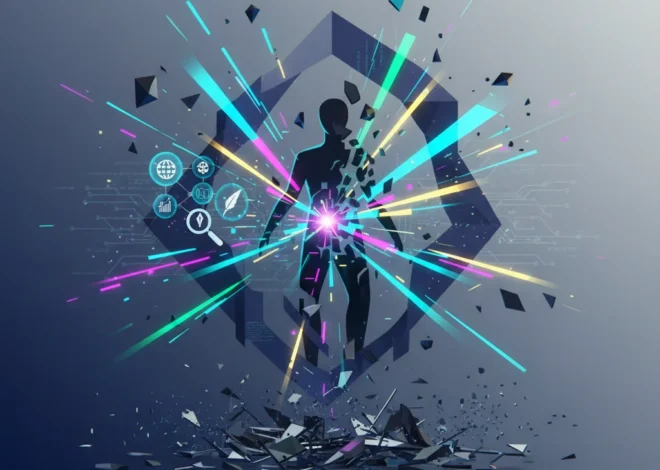
The Silent Traffic Thief: Is Google’s AI Killing the Open Web?
The Silent Traffic Thief: Is Google’s AI Killing the Open Web?
You’ve done it a thousand times. You have a question—anything from “What’s the best way to cook salmon?” to “Explain the basics of quantum computing”—and you turn to Google. You type in your query, hit enter, and… something new happens.
Before you even see the familiar list of blue links, a neatly formatted box appears at the top of the page. It’s an “AI Overview,” a concise, well-written summary that answers your question directly. It’s slick. It’s fast. And it might be slowly strangling the internet as we know it.
This isn’t just a new feature; it’s a fundamental shift in how we access information. And for the thousands of online newspapers, blogs, and independent publications that form the backbone of the web, it’s a potential catastrophe. According to a recent BBC report, publishers are already sounding the alarm, fearing that these AI-powered summaries are siphoning away the lifeblood of their existence: traffic.
What’s the Big Deal? The Zero-Click Conundrum
For years, the internet operated on a simple, symbiotic contract. Creators and publishers produced valuable content, and search engines like Google helped users find it. When you clicked a link, you landed on the publisher’s website. That click was everything.
A single visit could trigger a cascade of value:
- Ad Revenue: The publisher gets paid for the ads displayed on their page.
- Brand Building: You become familiar with their publication, increasing the chance you’ll return.
- Subscriptions & Support: You might like their work enough to subscribe or buy a product.
- Deeper Engagement: You might explore other articles, share the content, and become part of their community.
Google’s AI Overviews threaten to shatter this model. By providing the answer directly on the search results page, the need to click through to the source is drastically reduced. This is the evolution of the “zero-click search”—a phenomenon where a user’s query is answered on the results page itself. While this has existed for a while with weather widgets and dictionary definitions, the power of modern artificial intelligence has expanded its scope to cover nearly any topic.
Imagine a travel blogger who spends weeks researching and writing a 3,000-word guide to visiting Tokyo. Previously, someone searching “best things to do in Tokyo” would click their link. Now, Google’s AI might scrape their content, combine it with a few other sources, and present a “Top 10” list in the AI Overview. The user gets their answer and closes the tab. The blogger gets nothing.
Under the Hood: The AI Engine Reshaping Search
This isn’t magic; it’s the result of incredible advancements in machine learning and cloud computing. The technology powering these overviews is a sophisticated piece of software, running on a massive, distributed cloud infrastructure. At its core are Large Language Models (LLMs)—the same kind of AI that powers tools like ChatGPT.
Here’s a simplified breakdown of the process:
- Crawling & Indexing: Google’s crawlers constantly scan the web, indexing trillions of pages.
- Query Understanding: When you type a search, the AI analyzes the intent behind your words.
- Information Retrieval: It identifies the most relevant, authoritative pages from its index.
- Synthesis & Generation: The LLM then reads and “understands” the content from these top sources, synthesizes the key information, and generates a brand-new, unique summary.
This entire process is a marvel of automation and complex programming. But it raises a critical ethical and economic question: If the AI’s output is built on the hard work of human creators, do those creators deserve a cut? Or at the very least, the traffic they once relied on?
A Double-Edged Sword: Innovation for Users, Disruption for Creators
From Google’s perspective, this is a


